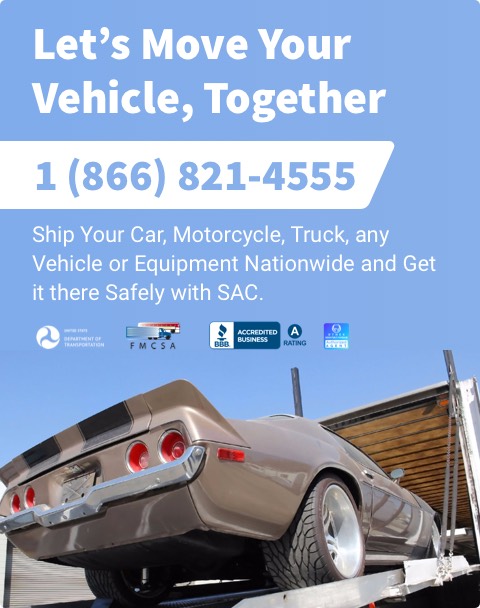This blog article looks at the soft costs that are sometimes disregarded yet are involved in setting up EV charging infrastructure. These expenses were found in a recent DOE research. In order to enable the spread of EV technology throughout the United States, it addresses the obstacles and methods for reducing these expenses.
Explore the economic impact of truck driver detention on deliveries in the U.S. This article explores practical methods for reducing detention time and describes how Ship A Car makes sure that its transportation services are dependable and on schedule.
A recall for cars with EcoBoost engines has been announced by Ford Motor Company because of possible intake valve problems. Models affected by this problem include the Ford Bronco and Lincoln Aviator, which may result in power outages and engine failure. Free inspections and repairs for automobile owners should be provided. Reimbursement can be offered to people who have already had repairs done. For further information and help, get in touch with Ford or the NHTSA.
The ultimate in truck driving expertise was on display in Indianapolis for the 87th National Truck Driving Championships. This esteemed tournament, which attracts contestants from all around the country, showcases the highest standards in professionalism, safety, and precise driving. Every driver, regardless of experience level, contributes their distinct background to the competition. In addition to celebrating the trucking community’s commitment to excellence, the event acknowledges individual accomplishments.

The shifting trend toward zero-emission vehicles, the rise in insurance premiums, the impact of legislation, and the growing significance of cybersecurity are some of the topics that are discussed in this blog post that examines deeper into the evolving challenges that trucking insurance in the United States faces.
The purpose of this blog post is to investigate the innovative use of WIM technology on the Brooklyn Queensway (BQE) in New York City. It demonstrates the effectiveness of this technology in reducing the number of overweight trucks and extending the lifespan of infrastructure while taking into consideration future expansion and technological challenges.
A cutting-edge ‘cool paint’ technology has been introduced by Nissan Motor Company with the intention of lowering the temperature of vehicles and reducing the amount of air conditioning that is required. This innovative technology reflects sunlight and prevents heat, resulting in a cooler driving experience as well as advantages for the environment. Nissan’s endeavor represents a big step forward in the development of automotive cooling technology, despite the fact that there are still obstacles to be addressed before commercialization can occur.
From 2023 to 2024, Toyota issued a recall that affected 22 different vehicle models. In this in-depth review, we examine the recall. Get familiar with the problems, the models that are affected, and the measures that Toyota is taking to ensure your safety.

Discover the latest Tesla recall plan affecting 1.85 million US vehicles and how it improves safety in this in-depth investigation. Learn about the technology advancements underlying Tesla’s preemptive actions.
This article explores the rationale for the 20% toll increase on Delaware bridges, the projects that have been financed, and the implications for the economy and transportation. Rehabilitating important bridge structures and updating tolling technology are two important initiatives that have a big impact on the region’s safety and economic stability.
In order to effectively handle recurring issues, this blog article explores the strategic adjustments that U.S. shippers must undertake in 2024. It focuses on improving supply chain visibility and diversifying port utilization. It provides long-term plans and doable solutions to assist stakeholders in handling unforeseen circumstances and preserving smooth operations.
The 2021 Infrastructure Law, which U.S. politicians are pushing to prioritize road safety via, is expected to significantly lower the number of traffic deaths. The aim is to make all roads in the country safer places for everyone by implementing strategic projects like Vision Zero and providing significant money for them. Find out how these legislative measures affect the way you commute every day.

A $2 billion decrease to DOT funds is proposed in the US House appropriations plan for FY 2025, which may have an impact on important transportation initiatives including the California High-Speed Rail and Amtrak. This indicates a substantial change in transportation strategy, prioritizing budgetary restraint above the development of new infrastructure. The planned bans on technology used in traffic enforcement may potentially regress traffic safety improvements. The political environment is important since these recommendations might be amended or adopted in light of the impending elections. It is important for anyone involved in US transportation policy to comprehend these dynamics.
This blog explores the relationship between transportation and retail sales in the United States, emphasizing the ways in which trucking operations are impacted by occasions such as Amazon Prime Day. It offers insights for stakeholders in both sectors and covers future projections as well as strategic adjustments in the transportation business.
Learn how high-speed EV charging stations located around the United States are transforming travel by Mercedes-Benz and Starbucks. This collaboration not only advances environmental sustainability but also raises the bar for EV technology’s accessibility and ease.
